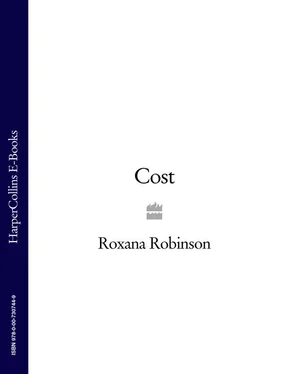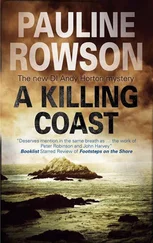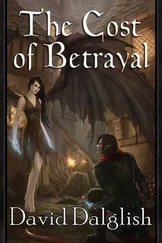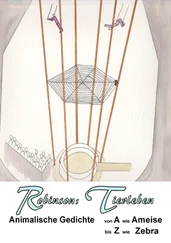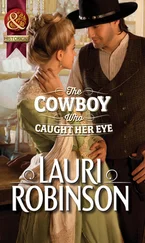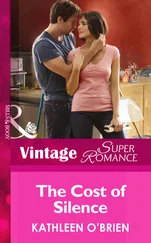“We're Down East,” Julia said. “That's what you say up here. You don't say north or south, you say Down East. Because of the schooners, and the prevailing winds.”
“I know that,” Edward said. “I know about being Down East. What I want to know is where. I want to look at a map and see exactly where we are on the coast.”
“There might be a map in the car,” Julia said, though right now she doubted it, “but I'm in the middle of making lunch. Can it wait until afterward?”
What her father made her feel was incompetent: the missing atlas, the absent husband, the shabby house. Don't say anything more , she silently commanded.
She peeled off a translucent slice of ham and laid it carefully onto the bread. Her father waited for a moment, but she did not look up.
Frustrated, he turned away. She heard him heading slowly down the hall, the floor creaking beneath his steps.
At once she was ashamed.
Why did this happen? Why did she snap at her father like an adolescent? Why did he unsettle her? She was an adult. She had two wonderful sons, an ex-husband, and a possible new boyfriend; she taught at a distinguished university, she was a working artist, she showed her work regularly at a good gallery. She should be far beyond the reach of her father. But her father, though he himself was diminishing, still cast a long shadow over her life.
Julia and Wendell had bought this house years ago, when the boys were small. It was supremely inconvenient—an eight-hour drive from Manhattan—but supremely cheap. Even so, the upkeep and taxes had always been a struggle, and many times they'd almost sold it. The house would never be worth much, though; it was not on a fashionable part of the coast: no presidents or Wyeths or Rockefellers lived in this small stretch of bays and coves and wild islands.
The clapboard house stood at a little distance from the weathered barn. This was unusual here: during the old, bitter winters it had been too dangerous to venture outside. The old farmhouses were connected to their barns by a telescoping series of constructions. Bighouse, little-house, backhouse, barn, they were called. Julia liked the notion of continuous shelter, and she liked the rhythm of the phrase. Sometimes she said it silently to herself as she passed an old farmstead.
This house—now entirely hers—was lapped by meadows. In the upper field, above the house, were ancient apple trees gone exuberantly wild, their branches tangled into a sweet green net. The lower field was only grass, soft and silky, sloping mildly down to a sheltered tidal cove. Now, in late summer, the grass had turned a tawny pink, and glowed mysteriously at sunset. Julia's studio was in the barn overlooking the meadow. Through the big picture window she had painted this many times, the rich rippling grass, the moving water beyond it, the glittering sea-bright light. It was a symphony; she had never come to the end of it.
Julia and Wendell had always planned to fix up the house properly, but they could never afford it, and the house had stayed shabby. The white paint peeled in the scouring Maine weather, the shingles turned mossy, the shutters drooped at the windows. “Look on the bright side,” Wendell said. “No one would break into a house that looks like this.”
Every summer Wendell and Julia had worked together on the house. Since the divorce, it was Julia and the boys, Steven and Jack. Julia tried to paint one outside wall every other year. It was peaceful work. She liked sitting high on the stepladder, scraping at the worn paint in the bright sun, no sound but the wind sifting through the grass.
Inside, she'd learned basic maintenance—fuse boxes, simple plumbing. How the window sashes worked, the hidden weights plummeting inside the wall. She liked knowing the house in this intimate way, the dim earthy spaces of the damp cellar, the cool touch of the pipes, the tiny beads of moisture on the singing metal. The hot motionless air of the attic, the sloping eaves, the faint desultory hum of wasps. She liked using the solid-headed hammer, the long gleaming nails. She liked the screwdriver, the firm twists sending the grooved shaft spiraling deep into the wood. She liked responding to the old house, earning her ownership.
Wendell had loved the house, too. It had been the biggest issue in their divorce, but Julia had been obdurate. At first Wendell had been furious, but then he'd married a woman who didn't like Maine. It was too far away, pronounced Sandra, too cold. They went to Bridgehamp-ton. If Wendell had kept the house, he'd have sold it when he married Sandra, and that would have killed Julia.
Julia liked Sandra, despite her wrong-headed views on Maine. Sandra was small and smart and friendly, like a terrier. Wendell was lucky to have her. As he'd been lucky to have her, Julia. Men were lucky to have any women, any women at all , she thought, laying down the top slices of bread. Her father would never realize how fortunate he'd been to have her mother at his side, patient, merry, forgiving. Men shuffled
and stomped their way through life, women smoothed out the rucked-up mess they made with their big boots.
To be fair, Julia remembered the smooth slide of the mayonnaise jar in her hands, engineers, the way men understood the physicality of the world, and their readiness to take risks, their reckless courage; she forgave them the boots.
To be fair, there were men who were wonderful, too, and women who were not. She herself was not so wonderful. She was often impatient, often ungenerous: look at the way she behaved toward her father—but she would do better. She would make it up, with her father.
There was the awful woman Wendell had left her for, ghastly and dead-eyed from drink or drugs. She'd been arrested once on the Mass Pike, Wendell had told her, DUI. So unseemly! Julia had been delighted. That was a woman who had not been wonderful in any way, except possibly in bed.
No, Wendell was luckier than God to have sane, comforting Sandra now in his life, a family therapist, and very kind. Kind to Wendell, kind even to Julia, and, most wonderfully, kind to Steven and Jack. And Simon, the man Julia had started seeing just before the summer began (a mathematician, and how unlikely was that?), was lucky to have her, Julia, in his life, too. Wasn't he? Though this was precipitate. She wasn't sure yet if she were in his life, or he in hers. He had become a presence— thoughtful, quiet, sympathetic—but things between them were in the early stages. She was cautious, he was reserved. It was too soon to say if either of them were lucky.
Julia leaned over the bowl of peaches, inhaling the rich sunny scent, inspecting them for ripeness. Two were dark tawny pink, gently yielding; one was darker, suspiciously soft. She took the bad one for herself, as penance for her behavior to her father.
She carried the lunch tray out the back door, to the porch overlooking the meadow. As she stepped onto it, the porch floor yielded slightly beneath her weight: it was rotting. Fungus and mold and many-legged creatures were burrowing furiously and constantly into its boards, slowly turning the wood into crumbling humus. It was a kind of alchemy, this continual mindless urge on the part of everything in the material world to return to an earlier, more primitive form: wood to soil, metal to rust, plaster to dust.
Julia imagined prizing up the soft wood with a crowbar, ripping up everything, revealing the damp splinters, the damp scuttling creatures. Banishing them, sweeping everything out, setting out the heavy new boards. Lining them up, measuring, sawing—though this was real, serious carpentry, electric saws, unwieldly lumber. It was beyond her. She'd take it up in some other life. The one in which she got along with her father.
Читать дальше
